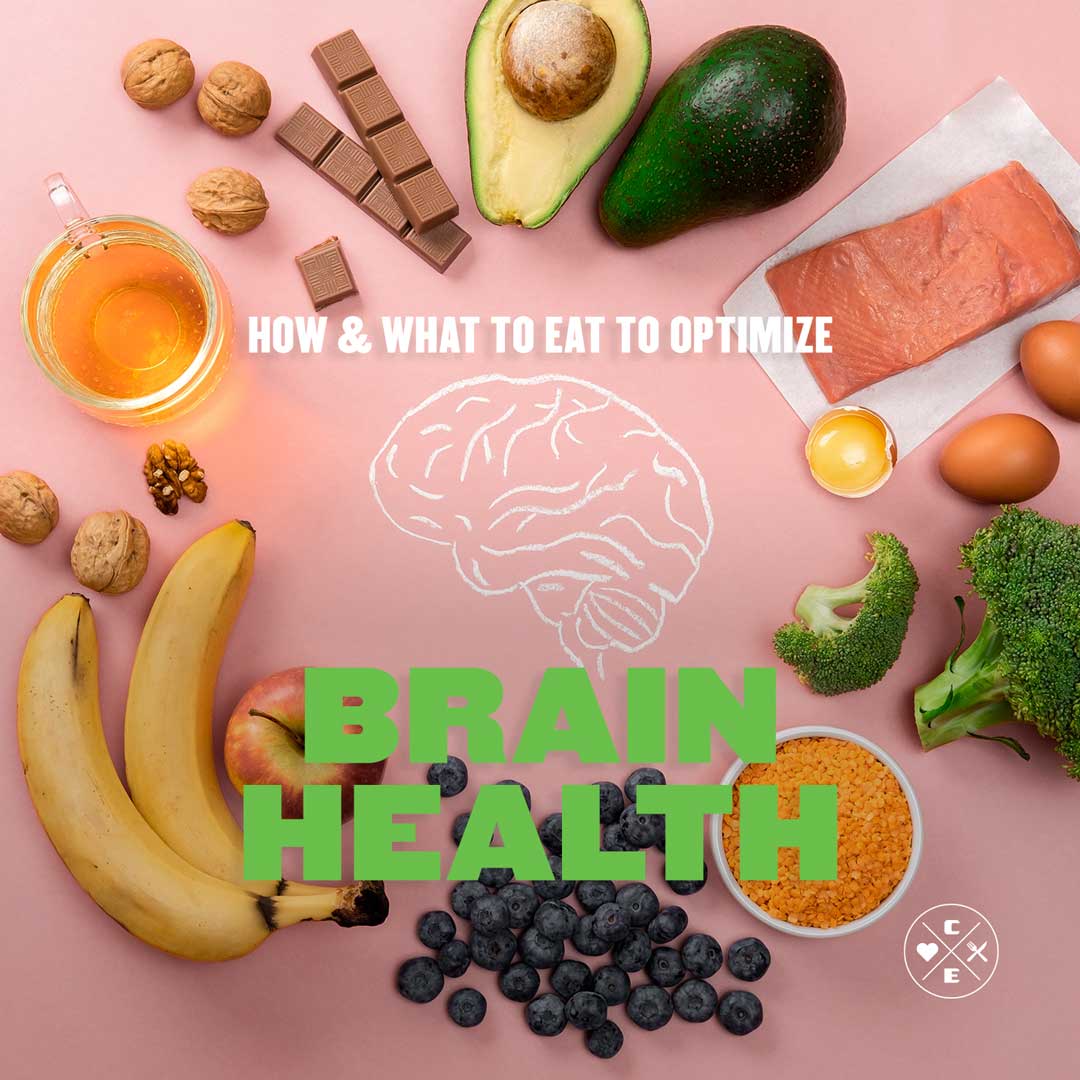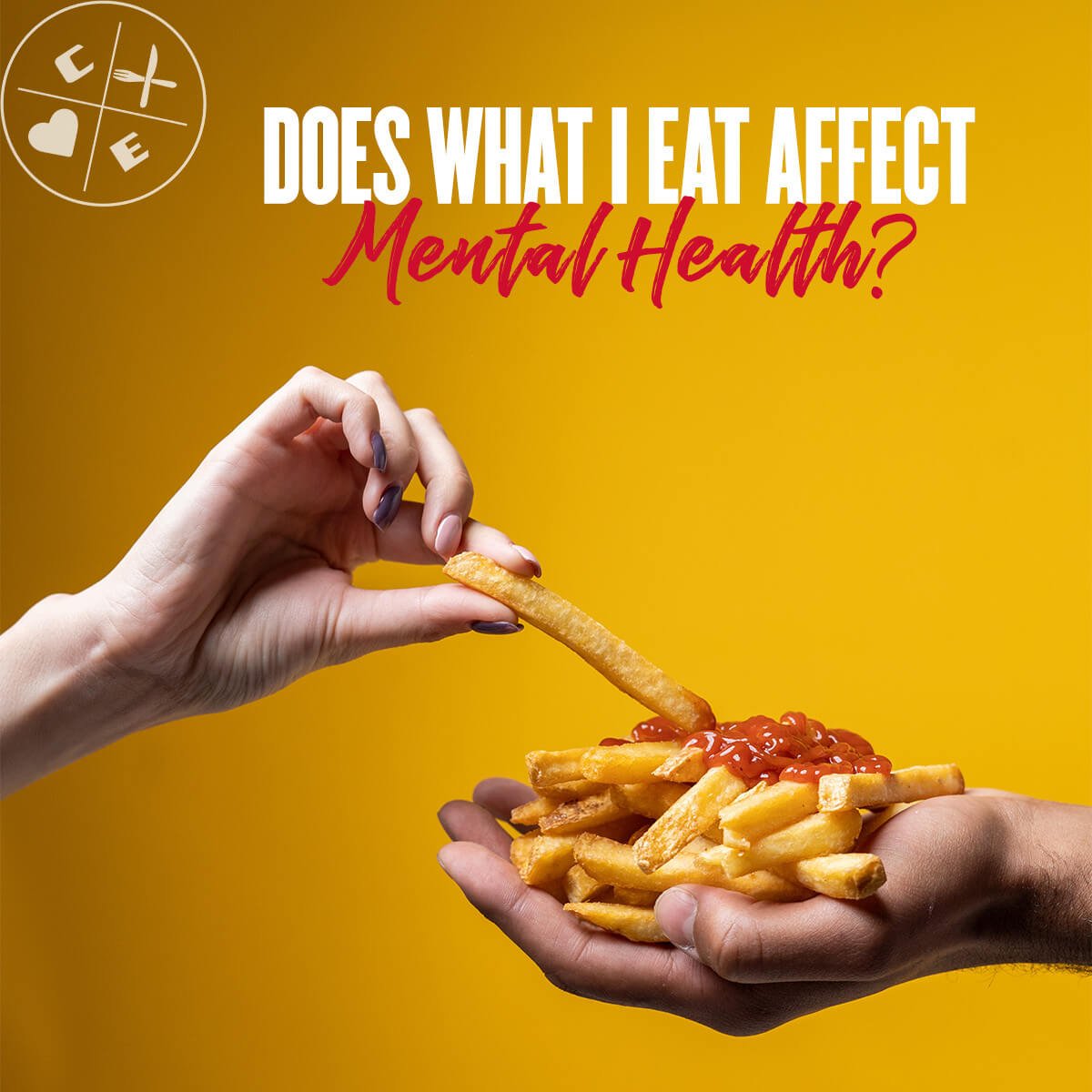
How and What to Eat to Optimize Brain Health?
Dorothy M. Shirnyl, RND
Nutrition
|
Healthy Lifestyle
|
Mental Health
16 minute read
Did you know that the food you eat can dramatically influence your brain's performance, memory, and even your overall mood? As our understanding of the gut-brain connection deepens, more and more people are recognizing the power of diet in optimizing cognitive function and promoting long-term brain health.
In this article, we'll delve into the fascinating world of "brain foods," exploring the science behind their impact and providing practical tips on how to incorporate them into your daily life. Get ready to discover how simple dietary choices can supercharge your mental clarity, focus, and memory – all while enjoying delicious and nourishing meals.
We will specifically look into the following:
- The Importance of Brain Health
- The Science of Nutrition and Brain Function
- Essential Nutrients for Brain Health
- Best Foods to Include for Optimal Brain Health
- Foods to Avoid or Limit for Brain Health
- Tips for Incorporating Brain-Healthy Foods into Your Diet
The Importance of Brain Health
The brain, often referred to as the "command center" of the human body, is responsible for an intricate array of functions, from basic bodily processes like breathing and heart rate to complex cognitive abilities such as thought, emotion, and memory. It's the epicenter of our experiences, shaping our interactions with the world and influencing our overall well-being.
However, the brain isn't invincible. As we age, or due to various health conditions, it can encounter challenges such as memory lapses, difficulty concentrating (often referred to as "brain fog"), and even more serious neurodegenerative diseases like Alzheimer's and Parkinson's. These issues can significantly impact our quality of life, affecting our independence, relationships, and overall sense of self.
The Science of Nutrition and Brain Function
Your brain is the epicenter of your being, a complex network of billions of neurons tirelessly working to process information, form memories, and shape your thoughts and actions. Like any vital organ, it requires specific nourishment and care to function optimally.
A healthy brain is a well-nourished brain. Just like your muscles need protein to grow and repair, your brain requires specific nutrients to function optimally. These nutrients support the intricate network of neurons, facilitate the transmission of signals, and protect against damage and degeneration.
When your brain is adequately nourished, you experience:
- Mental Clarity. The ability to think clearly and make sound decisions, free from brain fog or confusion.
- Enhanced Focus. The capacity to concentrate and sustain attention, even during complex or demanding tasks.
- Improved Memory. Efficient encoding, storage, and retrieval of information, allowing you to learn and recall with ease.
- Mood Stability. A balanced emotional state, contributing to overall well-being and resilience.
Conversely, a diet lacking in essential brain nutrients can lead to suboptimal performance. You might experience:
- Persistent Fatigue. That feeling of dragging through the day, even when you've had a full night's sleep.
- Mental Cloudiness. The frustration of "brain fog" making it hard to focus, remember things, or make decisions.
- Forgetful Moments. Those embarrassing times when names, dates, or even simple words slip your mind.
- Mood Swings. Feeling more irritable or emotionally reactive than usual, impacting your relationships and overall well-being.
The saying "you are what you eat" rings especially true for your brain. The foods you choose directly influence the health and function of this remarkable organ. By prioritizing a diet rich in brain-boosting nutrients, you provide your brain with the tools it needs to perform at its peak, allowing you to think, learn, and thrive.
In essence, a healthy brain is not just about preventing disease or decline; it's about unlocking your full cognitive potential, feeling energized, and embracing a fulfilling life.
Essential Nutrients for Brain Health
When it comes to optimizing brain health, certain nutrients play an indispensable role in providing the foundation for peak performance. Let's explore these key players and the foods that pack the biggest punch.
Omega-3 Fatty Acids
Omega-3 fatty acids, like DHA and EPA, are essential for building and maintaining healthy brain cells. They improve communication within the brain and protect against cognitive decline. Get your omega-3s from:
- Fatty Fish. Salmon, mackerel, sardines, and herring are excellent sources.
- Flaxseeds and Chia Seeds. These tiny seeds provide ALA, which your body converts into DHA and EPA.
- Walnuts. These nuts offer a plant-based source of ALA and other brain-boosting nutrients.
Antioxidants
See antioxidants as your brain's built-in rust-proofing system. Just like metal exposed to the elements can corrode and weaken over time, our brains are constantly exposed to oxidative stress - a natural byproduct of cellular processes and environmental factors. This "rust" can damage brain cells and contribute to cognitive decline, memory problems, and even neurodegenerative diseases.
Some of the most potent sources of antioxidants include:
- Berries. These colorful gems are packed with antioxidants like flavonoids and anthocyanins, promoting memory and cognitive function.
- Dark Chocolate. Indulge in a guilt-free treat! The cocoa in dark chocolate boasts flavanols, potent antioxidants that may enhance blood flow to the brain and improve mental performance.
- Spinach and Leafy Greens. These vibrant greens offer a rich source of antioxidants like vitamin C and beta-carotene, safeguarding your brain from damage.
- Colorful Fruits and Vegetables. The more vibrant the color, the higher the antioxidant content! Embrace the rainbow on your plate with fruits and vegetables of all shades to ensure a diverse and protective intake of antioxidants.
B Vitamins
B vitamins play a crucial role in maintaining optimal brain function. They're involved in the production of neurotransmitters, the chemical messengers responsible for communication between brain cells. Deficiencies in B vitamins can lead to cognitive impairment, mood swings, and fatigue.
Vitamins B6, B12, and folate are particularly important for brain health. Studies have shown that they may help prevent brain shrinkage and delay cognitive decline.
Some excellent sources of B vitamins include:
- Whole grains. Brown rice, quinoa, whole-wheat bread, oats, and barley.
- Eggs. A great source of B12 and other B vitamins.
- Leafy greens. Spinach, kale, and other leafy greens are rich in folate.
- Fortified cereals. A quick and easy way to boost B vitamin intake.
- Meat and poultry. Beef, chicken, and turkey provide various B vitamins, including B12.
- Legumes. Lentils, beans, and chickpeas are good sources of B vitamins, especially folate.
- Nuts and seeds. Almonds, sunflower seeds, and peanuts contain several B vitamins.
- Dairy products. Milk, yogurt, and cheese provide B12 and riboflavin (B2).
- Organ meats. Liver is a particularly rich source of B vitamins
Magnesium
Magnesium, a vital mineral, is key to learning and memory. It strengthens the connections between brain cells, helping us retain information and stay focused. Foods rich in magnesium include:
- Nuts and Seeds. Almonds, cashews, pumpkin and flaxseeds offer a crunchy, cognitive boost.
- Bananas. This handy fruit provides magnesium along with other brain-healthy nutrients.
- Leafy Greens. Spinach, kale, and Swiss chard support memory and focus.
- Dark Chocolate. A tasty way to add magnesium while also enjoying mood-boosting benefits.
Choline
Choline is a crucial nutrient for memory and focus, acting as a building block for the neurotransmitter acetylcholine. Without it, your brain's ability to form and recall memories can falter. Fortunately, plenty of delicious options can boost your choline intake:
- Eggs. The yolks are a top source of choline, easily incorporated into various dishes.
- Liver. While not for everyone, it's a potent source of choline for the adventurous eater.
- Soybeans. Edamame, tofu, and tempeh provide a plant-based choline boost.
Polyphenols
Polyphenols are potent plant compounds that act as your brain's natural defense system. They combat oxidative stress and inflammation, two major culprits behind cognitive decline and neurodegenerative diseases. Enjoy these polyphenol powerhouses to protect your brain and keep it sharp:
- Tea. Green, black, or oolong – all are packed with beneficial catechins and flavonoids.
- Coffee. Your morning cup offers more than just caffeine; it's also a source of brain-protecting polyphenols.
- Dark Chocolate. High-cocoa varieties provide a delicious way to boost brain health.
- Colorful Fruits. Berries, grapes, and apples offer a vibrant dose of antioxidants.
Best Foods to Include for Optimal Brain Health
A well-nourished brain is a powerful brain. By incorporating these brain-boosting foods into your diet, you're providing the essential fuel and building blocks for optimal cognitive function. Let's embark on a culinary journey to discover the delicious and diverse ways to nourish your mind.
Fatty Fish
When it comes to brain health, fatty fish reigns supreme. These oceanic gems, such as salmon, mackerel, and sardines, are packed with omega-3 fatty acids, particularly DHA and EPA, which are crucial for building and maintaining healthy brain cells.
Incorporating more fish into your diet:
- Aim for 2-3 servings per week. Start by including fatty fish in your meals twice a week and gradually increase to three.
- Explore different cooking methods. Grill, bake, poach, or pan-sear your fish for a variety of flavors and textures.
- Get creative with recipes. From salmon burgers to mackerel tacos, there are countless ways to enjoy fish beyond the traditional fillet.
- Consider canned fish. Canned salmon and sardines are convenient and affordable options, perfect for adding to salads or enjoying on toast.
Leafy Greens
Leafy greens like kale and spinach are nutritional powerhouses that can help protect your brain and keep it sharp. Here are some easy ways to add more to your diet:
- Smoothies: Blend them into your morning drink.
- Salads: Make them the base of a vibrant salad.
- Sautéed: A quick and tasty side dish.
- Sandwiches & Wraps: Add a layer for extra nutrients.
- Soups & Stews: Stir in a handful for a boost.
- Omelets & Frittatas: Mix them into your egg dishes.
Nuts and Seeds
Nuts and seeds, nature's compact energy bars, are packed with brain-boosting nutrients like healthy fats, vitamin E, and magnesium. These nutrients nourish brain cells, support memory function, and protect against cognitive decline.
Snack Ideas and Recipes
Trail mix with nuts, seeds, and dried fruit- Nut butter on whole-grain toast or apple slices
- Chia seed pudding with berries
- Flaxseed crackers or muffins
Berries
Berries aren't just a sweet treat; they're also a superfood for your brain. Packed with antioxidants called flavonoids, they combat inflammation and oxidative stress, promoting brain health and potentially delaying age-related cognitive decline.
Ways to include berries:
- Breakfast. Add them to yogurt, oatmeal, or smoothies.
- Snacks. Enjoy a handful on their own or with a dollop of yogurt.
- Desserts. Bake them into muffins, cobblers, or pies.
Whole Grains
Whole grains provide your brain with a slow and steady supply of glucose, its primary fuel source. This helps maintain stable energy levels, focus, and concentration, preventing the mental fatigue associated with sugary snacks and refined carbs.
Here’s what you can do with whole grains:
- Oatmeal
- Stovetop. Combine oats with water or milk, bring to a boil, then simmer for a few minutes until thickened.
- Overnight oats. Soak oats in milk or yogurt overnight in the fridge for a creamy, no-cook breakfast.
- Quinoa
- Rinse thoroughly. Combine with water or broth (1:2 ratio), bring to a boil, then simmer covered for 15 minutes or until the liquid is absorbed. Fluff with a fork.
- Brown Rice
- Rinse if desired. Combine with water or broth (1:2 ratio), bring to a boil, then simmer covered for about 45 minutes or until tender.
Eggs
Eggs are a highly nutritious, particularly rich in choline. They also contain B vitamins and antioxidants that can further supporting brain health.
Do these egg prep ideas beyond breakfast
- Hard-boiled eggs make a convenient and portable snack.
- Add chopped eggs to salads or sandwiches for a protein boost.
- Try scrambled eggs with vegetables for a quick and healthy dinner.
- Poached eggs on avocado toast offer a satisfying and brain-boosting brunch option.
Foods to Avoid or Limit for Brain Health
Just as certain foods can nourish and protect your brain, others can hinder its optimal function and even contribute to cognitive decline. By being mindful of these dietary pitfalls, you can pave the way for a healthier, sharper mind.
Refined Sugars and Carbohydrates
While your brain needs glucose for energy, a diet overloaded with refined sugars and carbohydrates can lead to a rollercoaster of energy crashes and mental fatigue.
Imagine your brain as a car engine: refined sugars are like low-grade fuel, providing a quick burst of energy followed by a sputtering slowdown. This fluctuating energy supply can impair focus, concentration, and overall cognitive performance. Moreover, studies have linked high sugar intake to increased risk of cognitive decline and even dementia.
Tips for reducing sugar in your diet:
- Read labels carefully. Be mindful of hidden sugars in processed foods like sauces, condiments, and packaged snacks.
- Choose whole fruits over juices. Whole fruits offer natural sweetness along with fiber, which slows down sugar absorption and provides sustained energy.
- Swap sugary drinks for water or unsweetened tea: Opt for healthier beverages that hydrate without the sugar rush.
- Satisfy your sweet tooth with natural options. Reach for fruits, dates, or a small piece of dark chocolate instead of sugary treats.
Trans Fats and Processed Foods
Trans fats and processed foods, often laden with unhealthy additives and preservatives, can trigger inflammation throughout the body, including the brain. This chronic inflammation can impair cognitive function, disrupt neurotransmitter balance, and increase the risk of neurodegenerative diseases.
Think of these foods as saboteurs, slowly undermining your brain's defenses and hindering its ability to perform at its best.
Common processed foods to avoid:
- Fried foods. French fries, doughnuts, and other deep-fried delights are often high in trans fats and inflammatory compounds.
- Packaged snacks. Chips, cookies, and pastries are often loaded with refined sugars, unhealthy fats, and artificial ingredients.
- Sugary drinks. Soda, energy drinks, and sweetened juices contribute to high sugar intake and inflammation.
- Processed meats. Bacon, sausage, and hot dogs contain high levels of sodium and unhealthy fats, linked to increased inflammation and cognitive decline.
Opt for whole, unprocessed foods whenever possible to nourish your brain and protect it from the damaging effects of inflammation.
Excessive Alcohol
While moderate alcohol consumption might have some potential benefits, excessive alcohol intake can wreak havoc on your brain health. Alcohol disrupts neurotransmitter balance, impairs memory and learning, and can even lead to brain shrinkage and long-term cognitive impairment.
Consider alcohol as a double-edged sword: a little might offer some benefits, but too much can cloud your mind and impair its function.
Recommendations for moderate consumption:
- Stick to recommended guidelines. Limit alcohol intake to no more than one drink per day for women and two drinks per day for men.
- Choose wisely. Opt for red wine, which contains resveratrol, an antioxidant with potential brain-protective properties.
- Be mindful of your limits. Pay attention to how alcohol affects your mood, sleep, and cognitive function, and adjust your intake accordingly.
Tips for Incorporating Brain-Healthy Foods into Your Diet
1. Meal Planning and Preparation
Just like a successful project needs a well-structured plan, a brain-healthy diet begins with thoughtful meal planning and preparation. This ensures you have a steady supply of nourishing ingredients and delicious meals ready to fuel your mind throughout the week.
- Start with a List. Begin by listing brain-healthy foods you enjoy and want to incorporate into your meals.
- Plan Your Meals. Create a weekly meal plan, including breakfast, lunch, dinner, and snacks. This helps you stay organized and ensures you have all the necessary ingredients on hand.
- Prep Ahead. Chop vegetables, cook grains, or marinate proteins in advance to save time during busy weekdays.
- Embrace Batch Cooking. Prepare larger portions of soups, stews, or grain bowls that can be easily reheated for quick and nutritious meals.
- Explore the MIND Diet. The MIND Diet is a brain-healthy eating plan specifically designed to help prevent cognitive decline and reduce the risk of Alzheimer's disease.
2. Mindful Eating
Mindful eating isn't just about what you eat; it's about how you eat. By slowing down, savoring each bite, and paying attention to your body's hunger and fullness cues, you can enhance your digestion, nutrient absorption, and overall well-being.
Mindful eating also fosters a deeper connection between food and your brain. It allows you to appreciate the flavors, textures, and aromas of brain-healthy foods, making them even more enjoyable and satisfying.
Tips for practicing mindful eating:
- Eliminate distractions. Turn off the TV, put away your phone, and focus on the meal in front of you.
- Slow down. Chew each bite thoroughly and savor the flavors.
- Listen to your body. Pay attention to hunger and fullness cues, and stop eating when you're comfortably full.
- Engage your senses. Notice the colors, textures, and aromas of your food.
Consistency and Balance
Building a brain-healthy diet isn't about perfection or deprivation. It's about finding a sustainable approach that nourishes your mind and body without feeling restrictive or overwhelming.
- Start small. Incorporate one or two brain-healthy foods into your diet each week and gradually build from there.
- Focus on variety. Aim for a diverse range of brain-boosting foods to ensure you're getting a wide array of nutrients.
- Embrace flexibility. There's no one-size-fits-all approach. Find what works best for you and your lifestyle.
- Don't be afraid to indulge. Enjoy occasional treats in moderation. A balanced diet allows for flexibility and enjoyment.
Remember, consistency is key. By making small, sustainable changes and prioritizing brain-healthy choices over time, you can nourish your mind, enhance your cognitive function, and enjoy a fulfilling and vibrant life.
Unlock Your Brain's Full Potential
The power to transform your brain lies not in a magic pill or a quick fix, but in the simple, everyday choices you make about what you eat. By embracing a diet rich in brain-boosting nutrients, you're not just fueling your body; you're unlocking your mind's full potential.
Imagine a life where you effortlessly recall names and dates, where your focus is unwavering, and where your creativity flows freely. This isn't just a dream; it's a reality within your reach.
By prioritizing brain-healthy foods, you're laying the foundation for a sharper mind, a brighter future, and a life filled with endless possibilities. It's time to nourish your neurons, empower your thoughts, and embark on a journey of lifelong cognitive wellness.
Remember, every bite counts. Let food be your ally in unlocking the extraordinary potential of your brain.
Support Brain Health With Healthy, Prepared Meals
Our Build Your Own Meal Plan lets you curate a week of delicious, dietitian-approved meals that fit your taste buds and goals. We take care of the shopping, cooking, and portioning, so all you have to do is heat and enjoy.
Start meal prepping with Clean Eatz today!
Related Articles
Does What I Eat Affect Mental Health?
5 minute read



